5 Pinoys win in BC elections
5 Pinoys win in BC elections
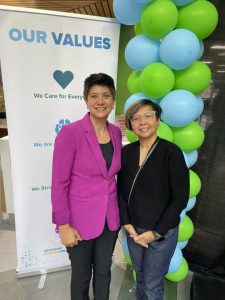
MLA Mable Elmore with Lailanie Tumaneng, Schood Board Trustee for North Vancouver
By Nestor Burgos
The Philippine Reporter
VANCOUVER —The October 15 local elections in British Columbia ushered a historic win for the Filipino-Canadian community long seeking greater political representation.
“We had the most successful (electoral) campaign for the Filipino-Canadian community in (British Columbia). We made history,” Mable Elmore, Member of Legislative Assembly (MLA) for Vancouver-Kensington electoral district, told The Philippine Reporter after an assessment meeting with candidates and campaign leaders.
Elmore, the first MLA of BC of Filipino heritage, said the results of the elections have “transformed the political landscape.”
She cited the winning of three Filipino-Canadian candidates for municipal council and two others for the local school board. This is considered the most number of elected officials from the community in the province at one time.
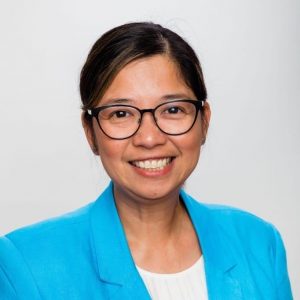
Maita Santiago, Councillor
in Burnaby
The three councillors who will be serving a four-year term include Maita Santiago in Burnaby, Gregg Apolonio in Dawson Creek, and Edwin Empinado in Kitimat.
Santiago, an immigration consultant and former secretary general of the progressive Filipino international migrant group Migrante, is the first ever councillor of Filipino heritage in Burnaby and the Lower Mainland.
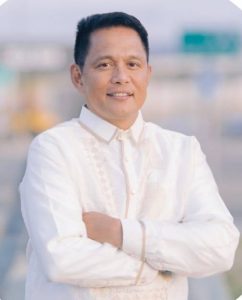
Gregg Apolonio, Councillor in Dawson Creek
Apolonio who ran as an independent got the fourth highest number of votes among six winning candidates outranking two incumbents.
Empinado, the first Filipino-Canadian to be elected municipal councillor in the province, will be serving a fourth.
Rod Belleza who previously served two terms as school trustee in Richmond was also elected for a third term. Lailani Tumaneng, a registered nurse and union organizer who ran for the first time, will join the school board of North Vancouver.
Elmore said there were 10 Filipino-Canadians who ran for public office in the province in this year’s elections, the most number at one time. Many more acted as campaign volunteers and staff.
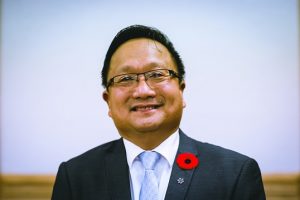
Edwin Empinado, Councillor in Kitimat
Elmore said their campaigns for the candidates were also effective because it was conducted based on their clear stand on issues such as affordable housing, upholding social justice and human rights and in a manner that was respectful and unifying.
Those who came short of winning performed beyond expectations, according to Elmore.
Hairstylist and former caregiver Lina Vargas who ran as an independent and first-time candidate got the highest number of votes among 11 independent candidates for the crowded city council race in Vancouver, the most populous in this westernmost province.
Despite limited resources as an independent candidate, she mounted a campaign that drew support not just from the Filipino-Canadians but from other racialized groups who translated her campaign materials into their languages.
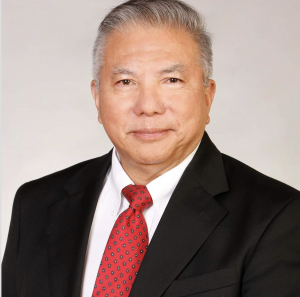
Rod Belleza, school trustee in Richmond
“I have no experience in elections, but I stepped up for underrepresented groups including Filipino-Canadians to have a greater voice,” she said.
Ramon Bandong, also a first-time candidate, garnered 14,315 after a four-month campaign.
“We are into something big, and we have to sustain this,” Bandong said.
A church leader with a 15-year banking career, Bandong said he will pursue his passion for public service in the next elections.
“It’s a transformation not a transaction,” he said.
Elmore said the recent elections which saw a record number of candidates and number of elected to office also drew the most from the community she has seen in the province.
“There is a realization that candidates can run and win,” she said.
She said there is also a greater recognition of the broader base of the Filipino-Canadian community.
Statistics Canada reported in its 2021 survey, that around 960,000 residents of Canada identified as Filipino, accounting for about 2.6% of the country’s total population.
The Filipino-Canadian community is the fourth biggest racialized group following South Asians, Chinese, and Black people.
The second largest proportion of new immigrants from 2016-2021 came from the Philippines next only to India, according to the survey.
Elmore said there are still challenges in overcoming the underrepresentation of the community and there were lessons to be learned from the October 15 elections.
“We should continue, and more involvement is needed. We can build on this campaign,” she said.
Among those that community leaders see the need for more attention are capacity-building, voters’ literacy, and training of candidates among others.
Comments (0)